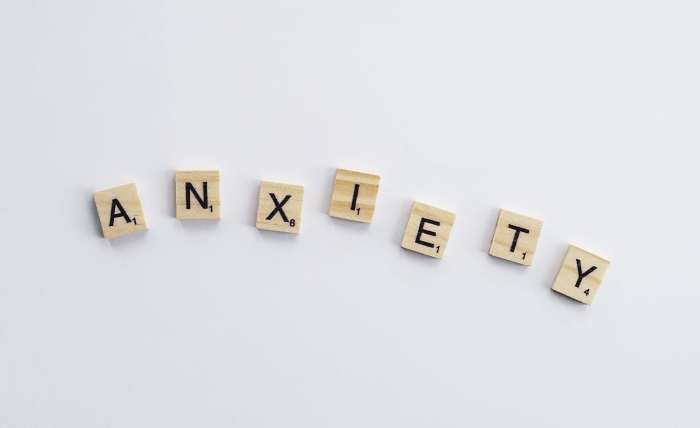
Mental health is foundational to our overall well-being, influencing how we think, feel, and interact with the world around us. In today’s fast-paced and often stressful society, it is crucial to prioritize mental health and develop strategies to maintain emotional balance. This guide explores several effective ways to enhance mental health, ranging from establishing daily routines to exploring new therapeutic options. By understanding and implementing these strategies, individuals can foster resilience against everyday stressors and improve their quality of life.
1. Establish a Routine
One of the most effective ways to bolster mental health is to establish a structured daily routine. Consistency and predictability can significantly reduce mental strain by removing the need to make constant decisions about mundane tasks. A well-structured routine includes dedicated time for work, physical activity, social interactions, and importantly, relaxation and downtime. Regularity in daily activities helps regulate the body’s natural cycles, including sleep patterns, which are critical for mental health. For instance, starting the day with a morning walk or meditation can set a positive tone, while winding down with a relaxing activity in the evening can improve sleep quality.
2. Explore New Therapies
Innovative treatments such as guided therapy are transforming the landscape of mental health care, particularly for those suffering from anxiety and depression. This treatment involves the administration of ketamine under professional supervision, which has been shown to provide rapid relief from mental health symptoms by promoting significant changes in brain function. Ketamine guided therapy can be particularly beneficial for individuals who have not responded to traditional treatment methods, offering new hope and possibilities for managing mental health conditions effectively.
3. Stay Physically Active
Physical activity is a powerful tool for mental health management. Regular exercise releases endorphins, often known as feel-good hormones, which can elevate mood and combat stress. Moreover, physical activity helps to reduce symptoms of anxiety and depression, making it a vital component of a healthy lifestyle. Whether it’s a daily jog, yoga, or team sports, integrating physical activity into your routine can improve both physical and mental health. It doesn’t need to be intense; even moderate exercise a few times a week can make a significant difference.
4. Prioritize Social Connections
Human beings are inherently social creatures, and maintaining strong social connections is essential for mental well-being. Relationships provide emotional support, reduce feelings of loneliness, and can help give individuals a sense of purpose and belonging. Prioritizing time with family and friends, engaging in community activities, or joining clubs and groups that align with personal interests can strengthen social bonds. In times of stress, having a robust support network to lean on can be incredibly protective against mental health declines.
5. Practice Mindfulness and Meditation
Mindfulness and meditation are key practices for enhancing mental health by improving focus, reducing stress and anxiety, and fostering an overall sense of well-being. These practices involve focusing on the present moment and becoming more aware of your thoughts and feelings without judgment. Beginners can start with just a few minutes a day, gradually increasing the duration as they become more comfortable with the techniques. There are numerous resources available, from apps to community classes, that can guide individuals in developing a consistent mindfulness practice.
6. Maintain a Healthy Diet
Nutrition plays a critical role in mental health, just as it does in physical health. A diet rich in essential nutrients can enhance brain function and improve mood. Incorporate foods high in omega-3 fatty acids, such as salmon and flaxseeds, which are known to support brain health. Additionally, glutamine supplement may aid in cognitive function and overall mental clarity. Include plenty of fruits and vegetables in your diet, which are loaded with vitamins and antioxidants that can help reduce inflammation and promote better mental functioning. Lean proteins and whole grains also contribute to sustained energy levels and overall well-being. Avoiding excessive caffeine and sugar can also help stabilize mood fluctuations throughout the day.
7. Get Sufficient Sleep
Sleep is vital for mental health; it allows the brain to rest and recharge, consolidating memories and processing information from the day. Lack of sleep can lead to irritability, increased stress, and worsened mental health conditions. Establish a regular sleep schedule by going to bed and waking up at the same time each day. Create a restful environment in your bedroom—consider room-darkening shades, a comfortable mattress, and a cool room temperature. Limit exposure to screens before bedtime since the blue light emitted can disrupt your natural sleep cycle.
8. Set Realistic Goals
Setting achievable goals can provide a sense of purpose and direction, which is beneficial for mental health. Goals should be specific, measurable, and time-bound. They should also be realistic, so you feel motivated rather than overwhelmed. Celebrate small victories along the way to maintain motivation. If goals don’t seem attainable, break them down into smaller, manageable tasks to avoid feelings of inadequacy or frustration.
9. Seek Professional Help When Needed
There should be no stigma associated with seeking help for mental health issues. Recognizing when you need professional assistance is a crucial component of self-care. Therapists and counselors can provide valuable tools and insights for managing stress, anxiety, depression, and other mental health conditions. They offer a supportive environment to explore personal issues and develop coping strategies. Don’t hesitate to reach out for help if you’re feeling overwhelmed or if your mental health is interfering with your daily life.
10. Limit Screen Time
Excessive screen time can negatively impact mental health, contributing to eye strain, poor sleep, and increased feelings of isolation. Be mindful of the time spent on electronic devices, and try to take regular breaks to engage in other activities that promote well-being, such as reading a book, spending time outdoors, or practicing a hobby. Establishing designated tech-free times, especially during meals and before bedtime, can help mitigate the adverse effects of too much screen exposure.
Mental health is as important as physical health and requires just as much attention and care. By integrating healthy lifestyle habits like maintaining a nutritious diet, getting adequate sleep, setting realistic goals, and limiting screen time, you can significantly enhance your mental well-being. Remember, utilizing resources such as professional counseling and exploring therapeutic options like ketamine guided therapy can provide additional support. Prioritizing these aspects of mental healthcare empowers you to lead a more balanced, healthy, and fulfilling life.



